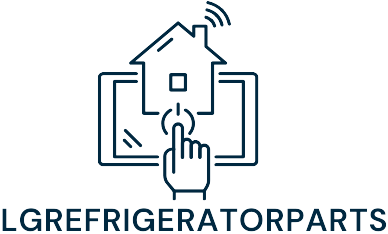Table of Contents
ToggleBuying a home can feel like trying to scale Mount Everest without oxygen. The summit looks beautiful, but the daunting down payment often leaves many prospective buyers gasping for breath. Thankfully, down payment support programs are like the trusty sherpas of the real estate world, guiding homebuyers through the treacherous terrain of financial hurdles.
Understanding Down Payment Support
Down payment support plays a crucial role in helping prospective homebuyers navigate financial barriers. Various programs offer assistance, making homeownership more attainable.
What Is Down Payment Support?
Down payment support refers to financial resources available for homebuyers to assist with the initial payment required when purchasing a home. These resources often come from government programs, nonprofits, and private organizations. Specific examples include grants, loans, and deferred payment options tailored to alleviate the burden of large down payments. Often, prospective buyers can access these funds without needing to repay them, enhancing their ability to purchase a home.
Why Is Down Payment Support Important?
Down payment support is vital for fostering homeownership among diverse populations. Many individuals and families struggle to save for substantial down payments, which frequently leads to missed opportunities. Assistance lowers the entry barrier to purchasing a home and promotes financial stability within communities. Programs often target low- to moderate-income families, addressing disparities in homeownership rates. By reducing the initial cost, down payment support contributes significantly to a more equitable housing market.
Types of Down Payment Support Programs

Several options exist to assist prospective homebuyers with down payment challenges. These programs aim to reduce financial barriers, fostering homeownership.
Government Assistance Programs
Government assistance programs provide valuable support in the form of grants and loans. Many initiatives aim to help low- to moderate-income families. For instance, the Federal Housing Administration (FHA) offers loans with lower down payment requirements, easing financial pressure. Additionally, some states offer specific grants that do not require repayment. Accessing these programs often depends on eligibility criteria, including income limits or geographic locations. They play a significant role in enhancing homeownership rates among diverse populations.
Non-Profit Organizations
Non-profit organizations frequently step in to provide down payment support. Many of them offer grants, loans, or educational resources tailored to first-time homebuyers. For example, Habitat for Humanity partners with families to create affordable housing options while also providing down payment assistance. Furthermore, local non-profits often organize workshops and counseling to guide buyers through the home purchasing process, focusing on financial literacy. These organizations target underserved communities, ensuring equitable access to homeownership.
Employer-Sponsored Programs
Employer-sponsored programs offer another avenue for down payment assistance. Some companies provide financial resources directly to employees, helping them afford homes. These programs may include down payment matching, loan options, or grants based on the employee’s tenure. Notably, these initiatives enhance employee retention by promoting financial wellness. Various organizations have successfully adopted these strategies, recognizing the importance of supportive work environments in fostering community stability.
Eligibility Criteria for Down Payment Support
Eligibility for down payment support varies based on several key factors. Understanding these criteria helps prospective buyers determine their access to financial resources.
Income Limits
Income limits often play a crucial role in qualifying for down payment assistance. Many programs set maximum income thresholds based on local area median income figures. For instance, a household earning less than 80% of the median income for their area may qualify for specific assistance programs. These limits ensure that support prioritizes low- to moderate-income families. Full eligibility details typically depend on the program and location, so it’s essential for applicants to verify requirements.
Credit Score Requirements
Credit score requirements can differ significantly among down payment assistance programs. Many lenders prefer a minimum credit score of 620, though some initiatives may accommodate lower scores, particularly for first-time buyers. A higher credit score can enhance opportunities for more favorable loan terms. It’s common for assistance programs to assess an applicant’s overall financial profile, looking beyond just the credit score. Regularly checking credit reports allows potential buyers to identify and rectify issues prior to application.
Geographic Restrictions
Geographic restrictions can impact eligibility for various down payment support programs. Certain programs limit assistance to specific regions, often focusing on areas with high housing costs or underserved populations. These targeted programs aim to stimulate homeownership in communities in need. Local government programs may feature unique criteria based on regional housing market conditions. Individuals should research available options within their intended purchasing area to ensure they meet the requirements.
Benefits of Down Payment Support
Down payment support offers numerous advantages for homebuyers and the broader community. These resources create pathways for increased access to homeownership, financial stability, and positive community outcomes.
Increased Homeownership Opportunities
Increased homeownership opportunities highlight the importance of down payment support. Many individuals feel unable to purchase homes due to hefty down payments. Support programs can lessen financial burdens, making homeownership attainable for diverse families. Grants and loans designed specifically for low- to moderate-income earners particularly help. Effective resources boost buyer confidence, enabling families to take the crucial step towards owning a home.
Financial Stability for Families
Financial stability for families often results from down payment assistance. Owners frequently experience enhanced financial security, with stable housing decreasing economic uncertainty. By facilitating home purchases, support programs help families allocate funds toward mortgage payments, savings, and investments. Rather than renting, families can build equity, contributing to long-term wealth. Efforts to improve financial literacy within these programs further ensure families manage their finances effectively.
Community Impact
Community impact remains a vital aspect of down payment support. Neighborhoods with higher homeownership rates tend to experience reduced crime and improved schools. Homeowners are more likely to invest in their communities, fostering better relationships with neighbors. Properties with stable owners often see increased property values, positively influencing the local economy. Therefore, down payment support programs contribute significantly to revitalizing areas and promoting equitable housing markets.
Challenges and Considerations
Down payment support presents both opportunities and challenges. Understanding these complexities aids prospective buyers in navigating the home buying process effectively.
Understanding the Application Process
Navigating the application process for down payment assistance can be daunting. Each program may have unique requirements, and careful attention to details is essential. Gathering necessary documentation, such as proof of income and credit history, proves crucial for a smooth application. Some programs require completion of education courses that inform buyers about homeownership. Meeting deadlines often becomes critical; missed dates could delay funding. Adequate preparation can make a significant difference in securing assistance.
Potential Risks Involved
Becoming reliant on down payment assistance carries potential risks. Borrowers might face higher interest rates with certain funding options. Additionally, some programs impose restrictions on future refinancing, limiting flexibility. Falling short of repayment terms can lead to financial strain or losing the home. Prospective buyers must carefully evaluate each program to understand the terms fully. Prioritizing thorough research helps mitigate risks associated with funding assistance.
Long-Term Financial Implications
Considering long-term financial implications is vital in accepting down payment support. Monthly mortgage payments may increase based on loan conditions tied to assistance. Long-term debt might also rise due to added fees from certain programs. Conversely, down payment support can facilitate earlier homeownership, leading to potential equity growth. Understanding these dynamics leads to informed decisions about financial wellbeing. Ultimately, assessing long-term costs and benefits ensures better financial planning for prospective homeowners.
Down payment support programs are vital for aspiring homeowners facing financial hurdles. By providing essential resources like grants and loans, these programs empower individuals and families to achieve their homeownership dreams. The impact of such support extends beyond personal benefits; it fosters community growth and stability.
While navigating the complexities of these programs can be daunting, the rewards often outweigh the challenges. With the right information and preparation, prospective buyers can access valuable assistance that paves the way to homeownership. Embracing these opportunities can lead to lasting financial security and contribute to a more equitable housing landscape for all.



